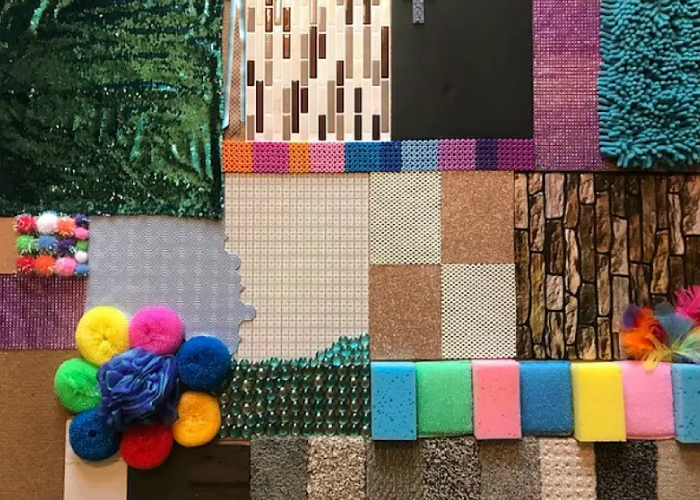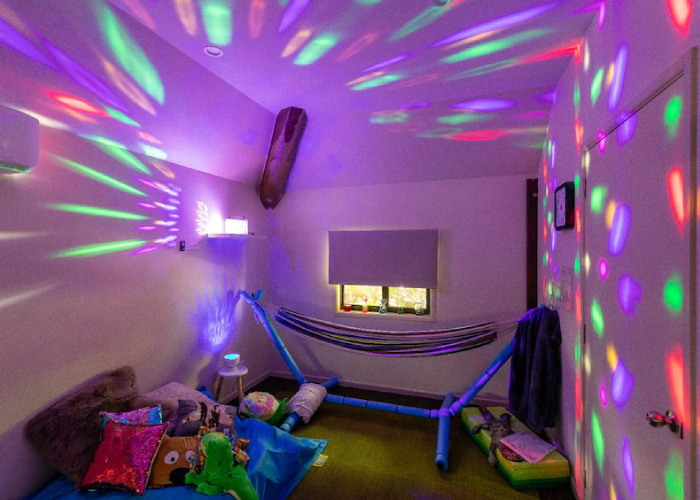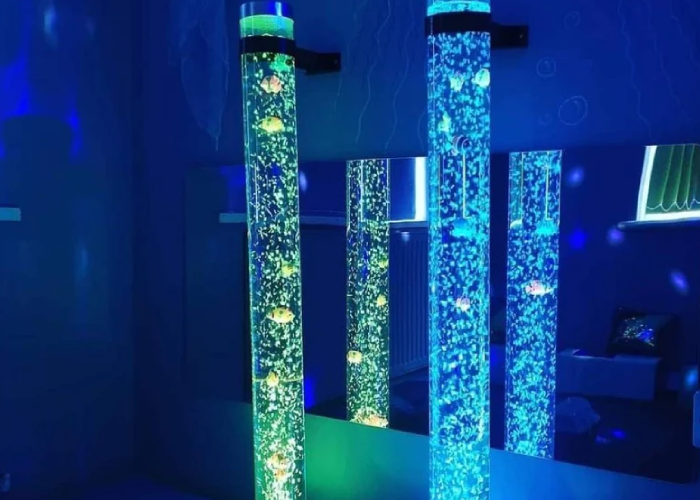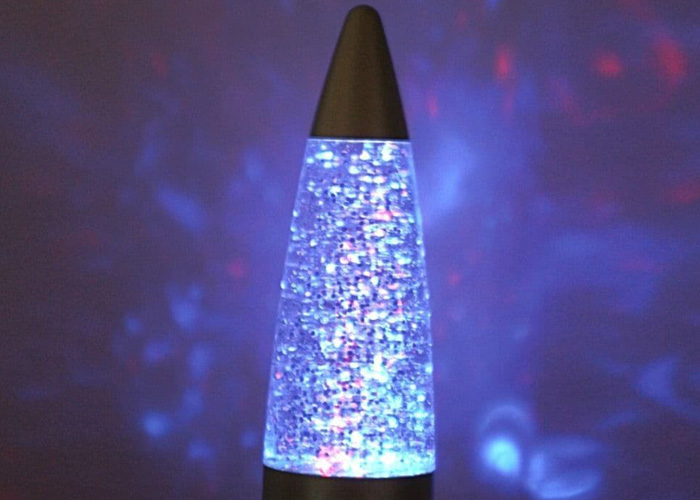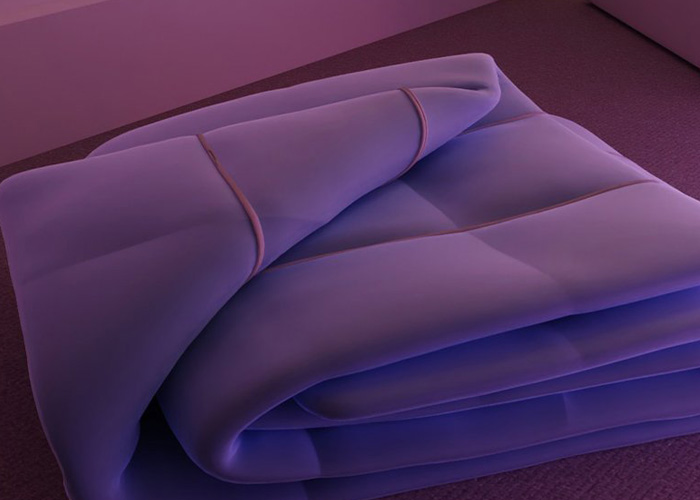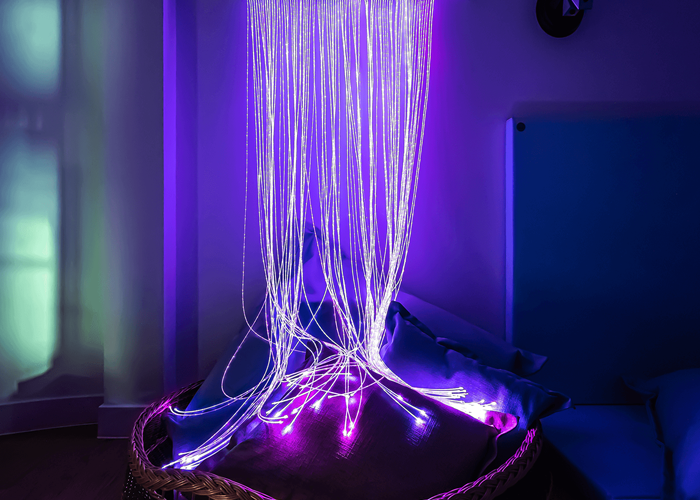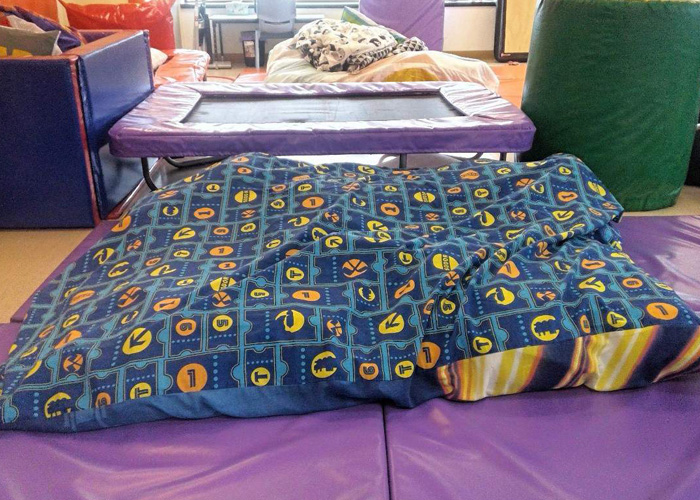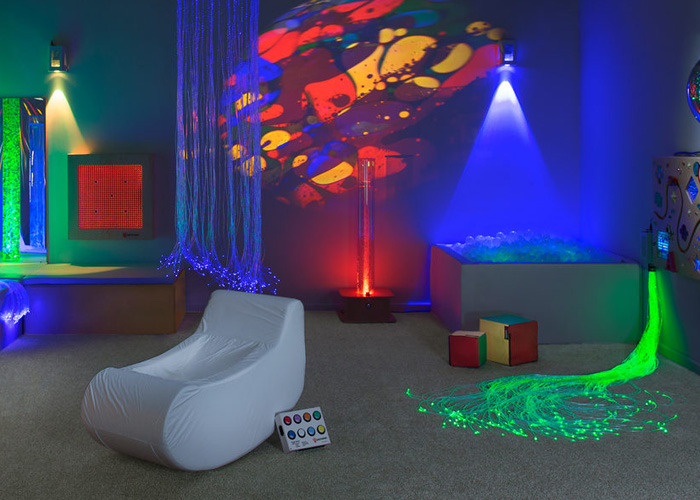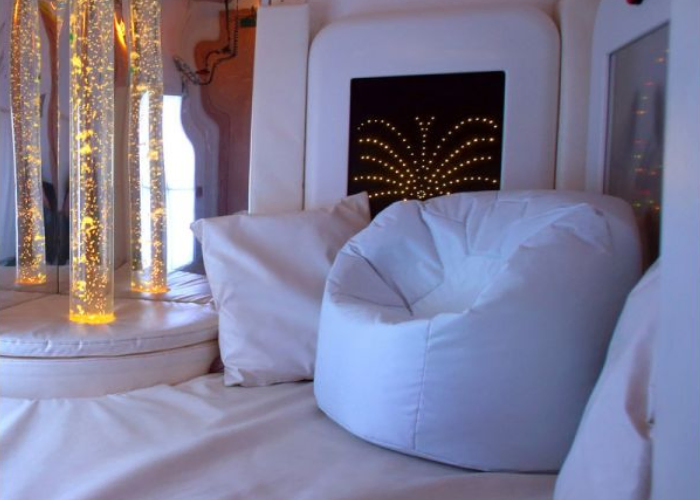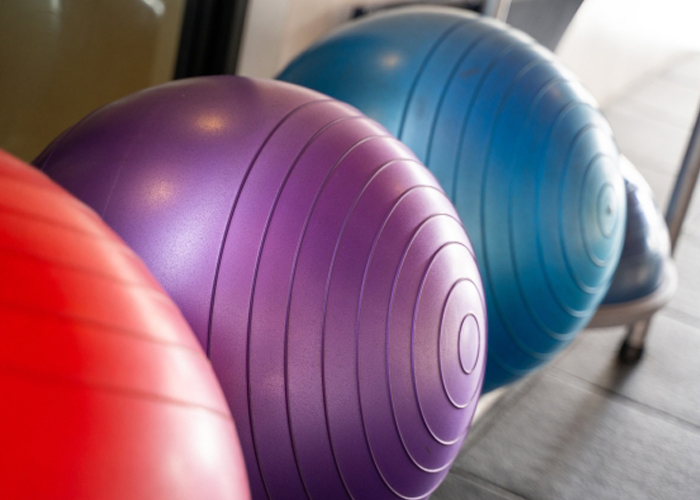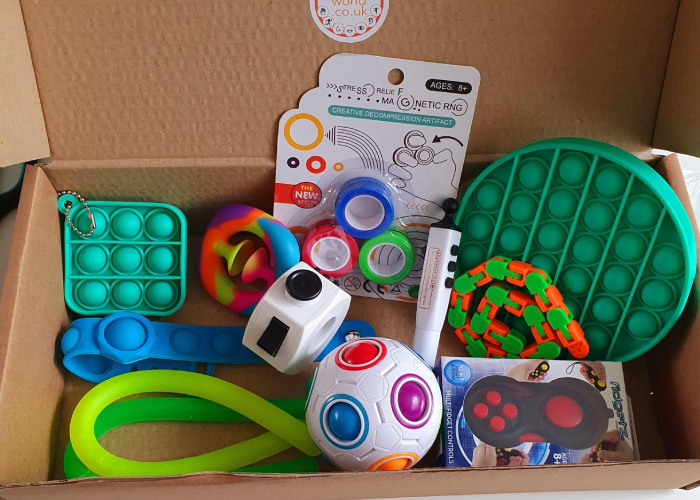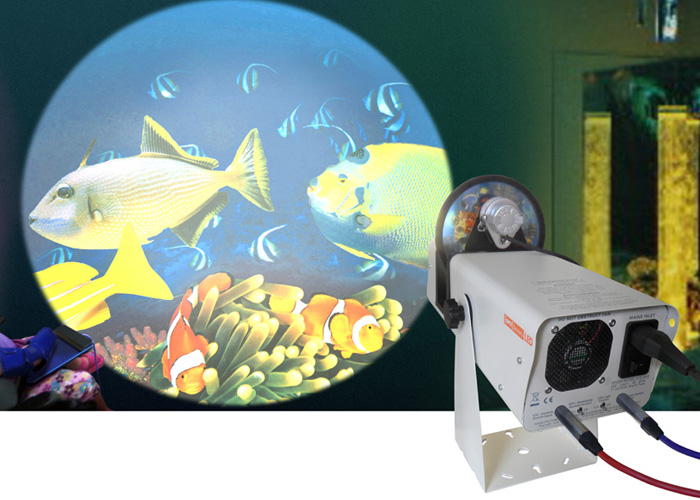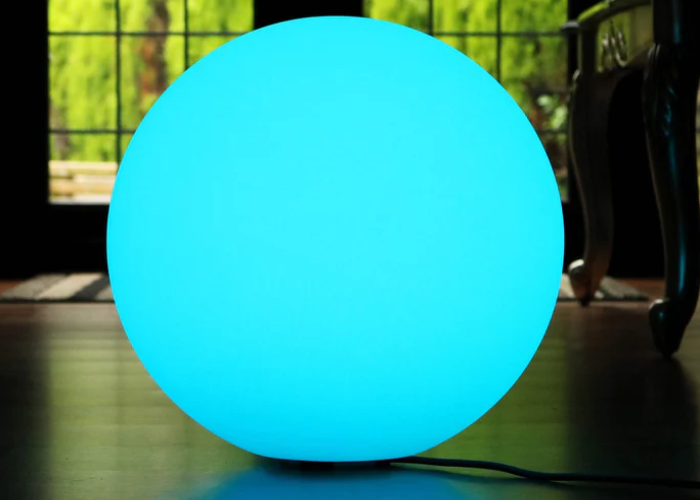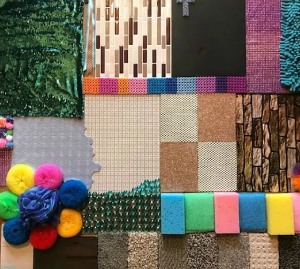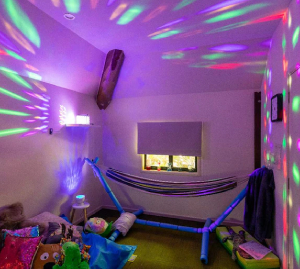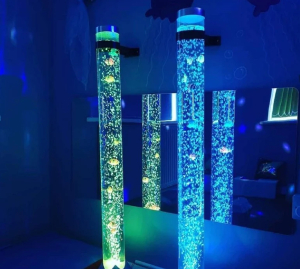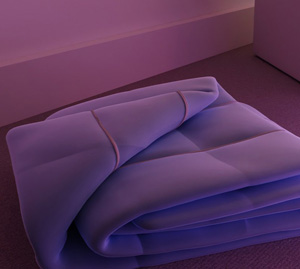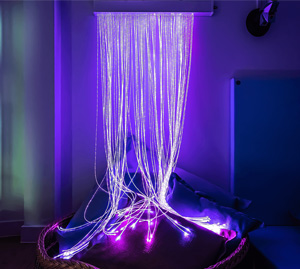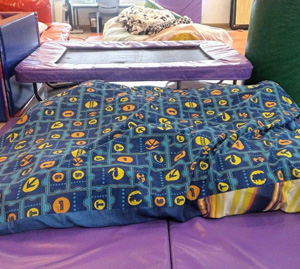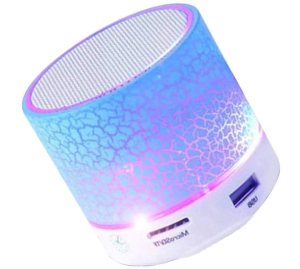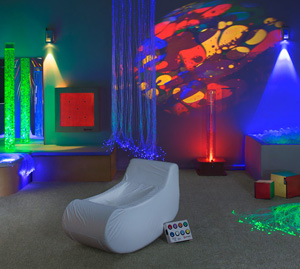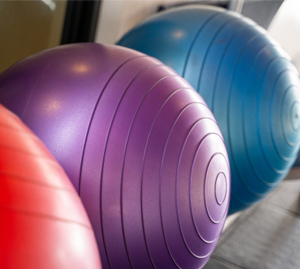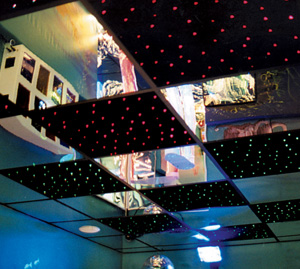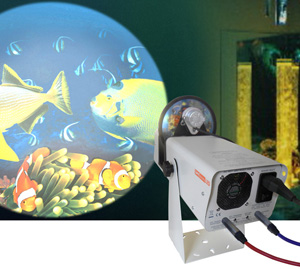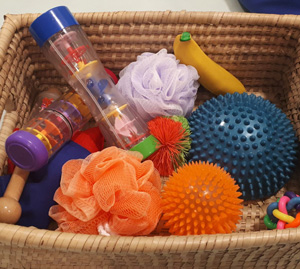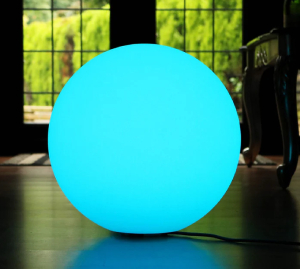Sensory rooms are therapeutic tools designed to provide a safe and multisensory experience. A sensory room is really just a comfortable environment that stimulates the senses and promotes relaxation and exploration. Although sensory rooms are often associated with children, they are suitable for people of all ages.
With our extensive experience in providing support for people with autism and various complex needs, we understand the significant impact sensory rooms can have on improving quality of life. Sensory rooms can increase calm and relaxation, reduce stress and allow people to engage meaningfully with their environment.
We’re sharing 25 calming and engaging sensory room ideas to inspire you to create one for yourself or someone you love.
Who Are Sensory Rooms For?
People of all ages from toddlers to the elderly can benefit from sensory rooms. They can be especially beneficial for people living with certain specialist conditions, including:
- People living with dementia
- People with learning disabilities
- People with autism
- Anyone that exhibits behaviour that is challenging to themselves or others
- People with brain injuries
- Mental health concerns
- People with physical or mental disabilities
- People receiving occupational therapy
- People with sensory processing disorders (SPD)
What are the Benefits of a Sensory Room?
Sensory rooms offer a wide range of benefits for individuals with sensory processing difficulties or disabilities – but they can offer fun and joy for people of all ages. Sensory rooms provide a fun and safe way for people to socialise, relieve stress and improve their communication skills.
Here are some of the key benefits of sensory rooms:
- Increase sensory stimulation by providing a safe and controlled environment where people can engage with the world around them.
- Improve motor skills by providing a space where people can explore different movements and engage in physical activities.
- Develop communication skills by engaging withdrawn individuals and encouraging fun and socialisation.
- Promote relaxation by providing a calming and comforting environment that can help reduce stress and anxiety.
- Sensory rooms can be particularly beneficial for individuals with ADHD by providing an environment where they can enhance their focus and concentration.
- Sensory rooms provide a safe space for people to explore and express themselves creatively.
25 Sensory Room Ideas
Sensory rooms are designed to stimulate and engage all the senses. To create a truly impactful sensory environment, it’s important to incorporate a range of sensory experiences. Think about how you can incorporate objects that engage all the senses including visual, tactile and auditory elements.
It’s also important to consider spatial awareness as well. The layout and design of the room or space can impact how people interact with the environment. Remember that you don’t need an entire room either. If space is limited, consider creating a sensory corner or closet.
With that in mind, here are 25 sensory room ideas to help inspire your own sensory space:
- Textured wall panels
- Hammocks
- Bubble tubes
- Lava lamps
- Weighted blankets
- Keyboard
- Disco ball
- Essential oils
- Fibre optics
- Crash pad (spatial)
- Bluetooth speaker to play relaxing music
- Fluffy rug
- Galaxy light protector
- Tapable LED tiles
- Rocking seating
- Bean bag chair
- Exercise ball
- Fidget toys such as pop its
- Glow in the dark wall decals or paint
- Mirror tiles
- Projector to show their favourite photos
- Storage bins
- Tactile pillows
- Mood lamps
- Mermaid fabric board
Specialist Support from Liaise
Sensory rooms can provide a wide range of benefits for individuals with complex and varied needs. It’s important to remember that creating a sensory room is a personal and unique experience. The room you create should always be tailored to the individual’s interests and preferences.
Liaise encourages involving the individual in the process of setting up the room to ensure that it is a safe and comfortable space for them to explore and interact with. Remember to work together and make it a fun and collaborative effort.
Liaise helps people live independently through person-centred support and community-based living. Our mission is to enrich the lives of people with autism and other support needs and enable them to live happy, fulfilling lives.
If you would like to learn more about our support services, do not hesitate to contact us. We look forward to hearing from you.


